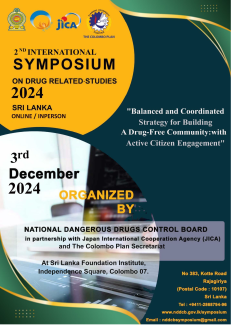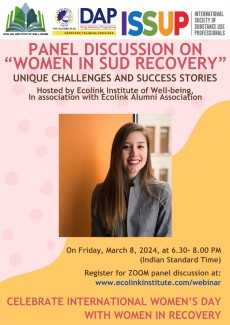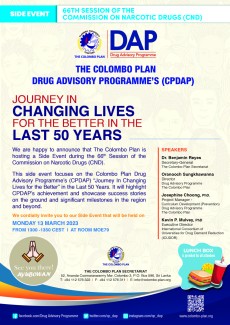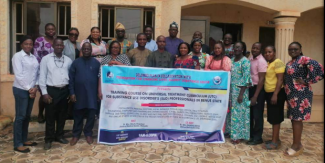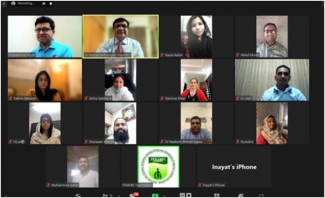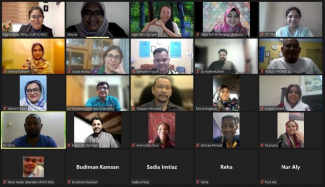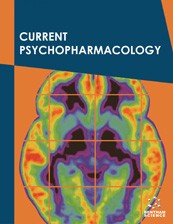2nd International Symposium on Drug-Related Studies
The 2nd International Symposium on Drug-Related Studies will take place on 3rd December 2024 in Colombo, Sri Lanka. This year’s theme, "Balanced and Coordinated Strategy for Building a Drug-Free Community: with Active Citizen Engagement" emphasises the importance of collaborative and community-based approaches in addressing drug issues.
